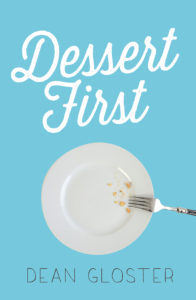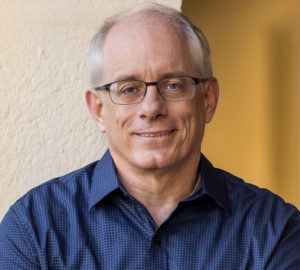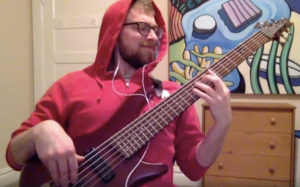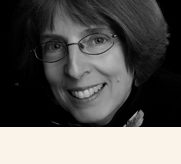 This month, after devouring Dean Gloster‘s debut YA novel Dessert First, I just had to track down the author and hear a bit about the story behind the story. How did he come to write this poignant novel? Lucky for me, Dean is currently studying in the MFA program at my alma mater, Vermont College of Fine Arts, so I found him there, and he made time in between MFA assignments to talk craft.
This month, after devouring Dean Gloster‘s debut YA novel Dessert First, I just had to track down the author and hear a bit about the story behind the story. How did he come to write this poignant novel? Lucky for me, Dean is currently studying in the MFA program at my alma mater, Vermont College of Fine Arts, so I found him there, and he made time in between MFA assignments to talk craft.
A.B. Westrick: Hello, Dean, and welcome to my blog!
Dean Gloster: Thank you for having me!
ABW: I want to start with a question about the funny-sarcastic parts of this book, but first I need to tell readers a bit about the story because a whole lot of the book really isn’t funny at all. From the title and cover art, readers might think the book includes a few recipes, but… no. Dessert First is the story of 16-year old Kat Monroe and the many issues in her life, beginning with her brother’s cancer relapse (leukemia), and including soccer girl bullies, a former boyfriend, and academic woes. Life is pretty rough, but Kat tries to keep up her sarcastic-funny side. So my first question is where this character and her sense of humor came from. Your bio says you’ve done stand-up comedy. Is it easy for you to write one-liners? Do teen characters bring out a natural snarkiness in you?
DG: Humor does come naturally to me and Kat’s voice came easily, in part because I channeled 16-year-old me. (Back then, I also had anger that came out as sarcasm, and that did not serve me well with peers.)
ABW: Ah-ha, so there might be other teen-you stories that you can resurrect for future novels. But sticking with Dessert First here, Kat sounds totally authentic. I’d love to hear you reflect on the challenge of writing outside your gender. You’re a guy and Kat’s a girl, and why did you decide to write this story from a girl’s point of view?
DG: Kat and her voice arrived before there was a story—I wrote one scene late in the book (the fight with Kayla) and then had to figure out what would lead Kat to that. Her bond with her younger brother, Beep, her struggles with her older sister, her trying to navigate her friendship/romance with Evan, her difficulties with other girls at school, and her being a partial caretaker for her family as a parentified child seemed to fit a female character better than a male one. It helped, in writing her, that she was an athlete—a soccer player—because I had coached girls’ soccer for many seasons, and I approach the world like an athlete. (My hobby is ski racing.) I got praise from my agent and editor and reviewers for how authentic Kat sounded, which was gratifying and reflected lots of editing and revision I’d done to take out what didn’t work.
 ABW: You definitely nailed her voice. And thank you for sending pictures of you ski racing! I especially like the one you labeled, “What? Me worry?,” taken just after you’d lost a ski. Go, Dean!
ABW: You definitely nailed her voice. And thank you for sending pictures of you ski racing! I especially like the one you labeled, “What? Me worry?,” taken just after you’d lost a ski. Go, Dean!
Okay, now let’s get back to the book and talk about social media. I thought you handled it deftly in the story. Your characters friended and unfriended each other, cyber-shamed peers, communicated “I love you” online rather than in person, and even “attended” a prom via Skype. Social media platforms didn’t exist when you were a teenager. How much research did you have to do to get the social media piece right? How’d you pull it off?
DG: I liked the idea of how people can have different identities online—
ABW: Oh, yes! I kept wondering if people were going to figure out that Kat and this other character—her online persona—were the same person.
DG: Yes, that added plot tension, but it wasn’t part of my early drafts. When I started writing the book, there was no Facebook. In the first draft, Kat’s online experience was through the cancer forums, an online bulletin board. So I changed a lot during the writing and revising. Like a lot of introverts, I like social media, so I had personal experience, but I also did lots of research, including how cancer kids’ use of Facebook is often different from other teens. One problem with including social media in a novel is that usage changes rapidly, while the writing and publishing process is slow, so it can date a book. (In an early draft, there was a reference to Myspace, which would be like trying to include live dinosaurs in a contemporary novel.)
ABW: Agreed. I think you’re safe with Facebook. These days, even if some readers don’t use Facebook, they know what it is.
Now I have a question about books with similar themes. Although your plot is significantly different from John Green‘s in The Fault in Our Stars, in both books The Big C—Cancer—looms. (Readers: if you liked Green, try Gloster!) Your book comes at cancer from the point of view of a cancer sibling. Did the release of Green’s blockbuster in 2012 have any influence on you while you were writing Dessert First?
 DG: Not while I was writing it, because I wrote the first draft before The Fault in Our Stars came out, and then studiously avoided reading John Green’s wonderful book (and Jesse Andrews’ terrific Me and Earl and the Dying Girl and Jordan Sonnenblick’s great Drums, Girls, and Dangerous Pie and Jandy Nelson’s amazing The Sky Is Everywhere about grieving the loss of a sibling) until I was done with revisions. Which is good, because those books would have been intimidating. I genuinely thought that no one in the publishing industry would be very interested in a funny, tear-jerking book about childhood cancer—sibling or otherwise. So John Green’s book created a market, and a possibility of publisher acceptance, for mine. (And for that, I remain eternally grateful.)
DG: Not while I was writing it, because I wrote the first draft before The Fault in Our Stars came out, and then studiously avoided reading John Green’s wonderful book (and Jesse Andrews’ terrific Me and Earl and the Dying Girl and Jordan Sonnenblick’s great Drums, Girls, and Dangerous Pie and Jandy Nelson’s amazing The Sky Is Everywhere about grieving the loss of a sibling) until I was done with revisions. Which is good, because those books would have been intimidating. I genuinely thought that no one in the publishing industry would be very interested in a funny, tear-jerking book about childhood cancer—sibling or otherwise. So John Green’s book created a market, and a possibility of publisher acceptance, for mine. (And for that, I remain eternally grateful.)
ABW: Yes, great timing. In Dessert First, I loved the sections written in “Mom Calmese”—your label for the voice of updates on cancer support websites. Nice detail. There were many, many details that lent authenticity to the story—so many that I wondered about your own personal history with cancer. How have you or your loved ones been affected by cancer?
DG: Wow. It’s hard to find a family that hasn’t been affected by cancer. My wife was a pediatric ICU nurse, and she took care of lots of young people with leukemia. Now she works in a children’s hospice. My dad had colon cancer. One of my brothers has had colon cancer, one of my sisters has had breast cancer, my brother-in-law has lung cancer, and my stepmom has had three separate kinds of cancer. It’s an awful, pervasive disease.
ABW: Good point. So let me ask it this way: what compelled you to write this particular story?
DG: My heart hurt for Kat, the protagonist, and I loved her voice and humor and fierceness. Once I started, I couldn’t not tell her story, so I had to figure out how to learn to write well enough to do her justice. That took lots of drafts, and after about the fourth draft I realized the story was also about learning to forgive others and yourself, which is a lesson I needed to learn, so I kept going.
ABW: That sense of forgiveness really comes through at the end.

Okay, now on a totally different topic, I have to tell you that I happen to love bass lines and a certain bass player in my family, so I want to call you out on a comment deep in the novel. Hahaha. Yes, I laughed when I read, “… when we find somebody ignorant enough to play bass…” but hey, come on, what’s that supposed to mean? What is your beef with bass players?!
DG: I was only ever in a rock band for seven minutes. And that was during the seventies, so it shouldn’t count at all. And I was only in the band that long because the song I sang was seven minutes long. After my performance, except for my brother, all the other members of the band literally said they’d quit if I stayed. (I didn’t stay.)
ABW: Okay, I forgive you!
DG: So I’m exactly not the authority on what makes music great. Both my brothers, though, are musicians. Kat’s snark about base players, very late in the book, is meant to show that while Kat has mellowed, and learned forgiveness, and grown as a person, and is moving away from using sarcasm as the way to grapple with the world, she still has a lot of anger and a ways to go.
ABW: Yes, a ways to go. Kat’s not going to change overnight, but I like the way you got her to a hope-filled place at the end.
Okay, last question: how long did it take you to write Dessert First, and how many revisions did it go through before you submitted it to an agent or editor? How different is the published version from your first drafts?
DG: It took me approximately forever—seven years, anyway—because when I started I had no idea how to write a novel, and because two years into the process, my brother got diagnosed with cancer, so I had to put the book aside until he went into remission.
ABW: Oh, I’m sorry to hear that—but glad he’s now in remission.
DG: Thank you. So am I.
I wrote an entire through-draft to the end before I showed a word to anyone and went through many, many drafts and edits before sending it to an agent. Like a lot of first novelists, I struggled initially with the form, so the first draft was in the format of the massive make-up paper that Kat submits to avoid flunking out in all her classes—complete with footnotes, which Kat didn’t know how to use, so she just put the jokes in there. That first draft was entertaining, but remarkably terrible, so I had to do a complete rewrite. But it helped me to find Kat’s voice and to get the story down, as a starting place.
ABW: Ah, yes, I get the reality of remarkably terrible first drafts. Kudos to you for persevering, and thank you so much, Dean, for writing such a good story, and sharing a bit about your process.
Readers interested in more should check out Dean’s website at DeanGloster.com and follow Dean on Twitter. Oh, and go get a copy of Dessert First. Once you read it, you’ll understand the meaning of the title.

Loved this interview! Congrats, Dean! I can’t wait to read this book. It sounds great!
I was sorry to hear about your brother having cancer. Glad he’s in remission. My mom went through a bout of cancer not long ago. She’s in remission as well.
Glad to hear your mom is in remission, Linda. Dean was so right when he said, “It’s hard to find a family that hasn’t been affected by cancer.” Made me stop and think, and… nope, I can’t think of any. Everyone I know has had at least one person in their family (or extended family) affected.
Great interview, Dean and Anne! I really enjoyed Dessert First and highly recommend it to anyone who hasn’t read it.
Thanks, Lyn!